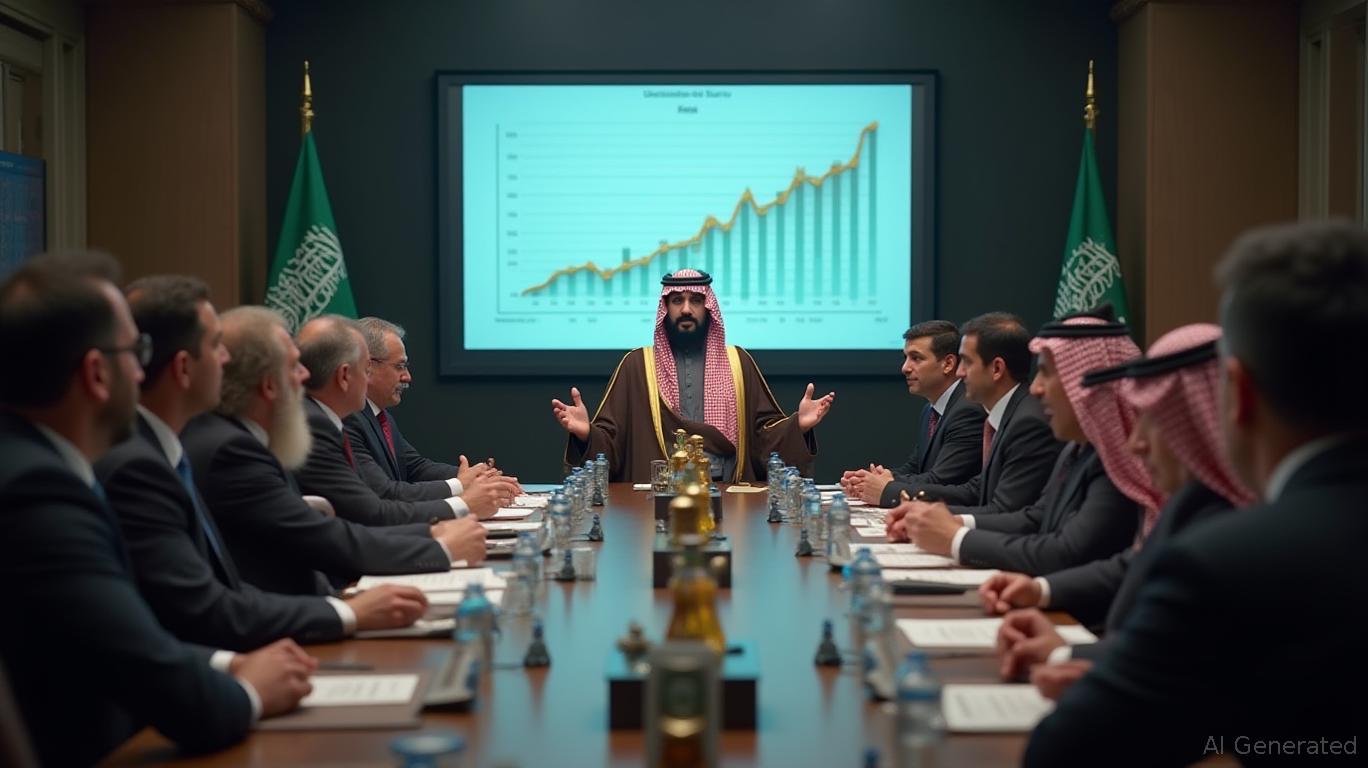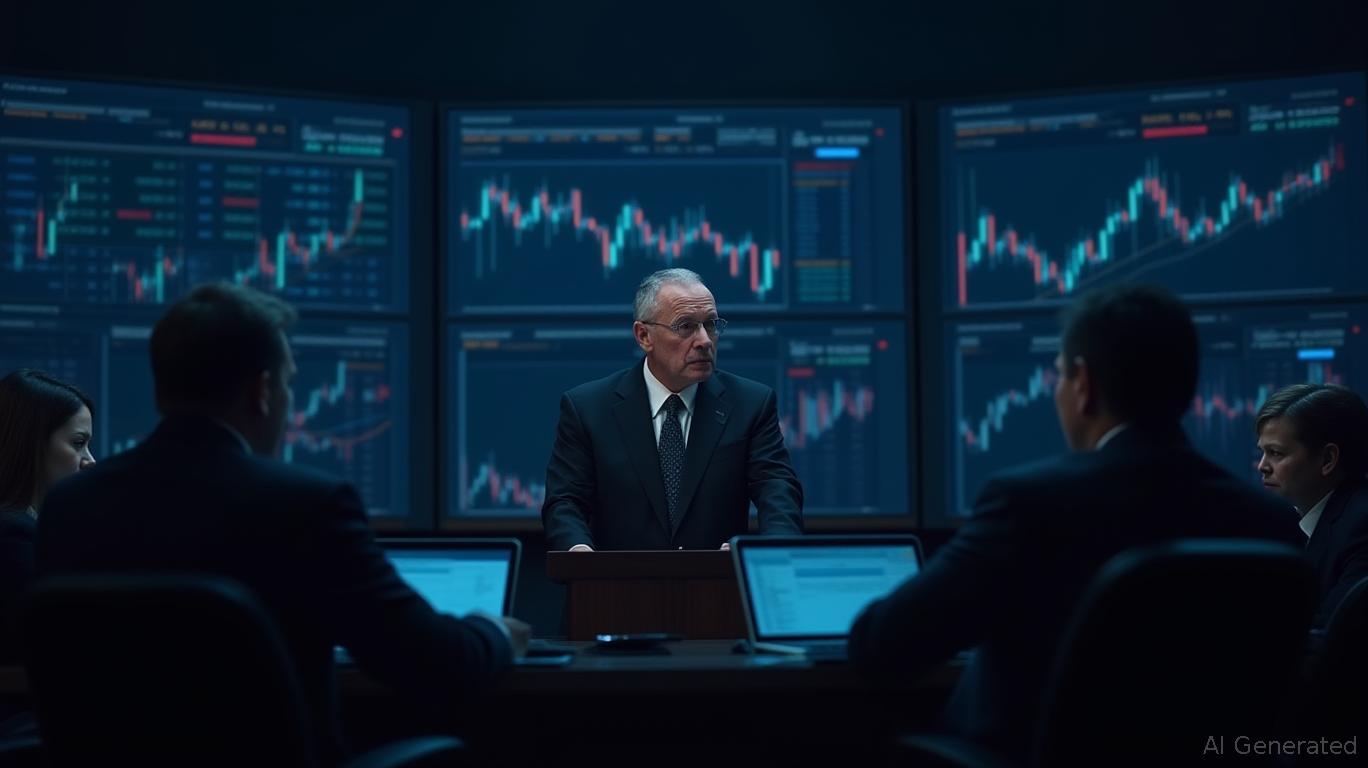Global shift to renewable energy slows down amid tariff disputes and Saudi Arabia's environmental goals
- Saudi Arabia advances 4.5 GW renewable projects under NREP, including record-low-cost solar/wind initiatives aligned with Vision 2030. - U.S. 50% tariffs on Indian goods and protectionist policies risk disrupting global energy collaboration, per Outlook India and PV Magazine. - Executive Order 14318 prioritizes nuclear/natural gas infrastructure, raising fossil fuel vs. renewables balance concerns in U.S. strategy. - Experts warn tariffs create artificial scarcity and inflate clean energy costs, threaten
Saudi Arabia is making significant progress with its large-scale renewable energy initiatives, even as a global conversation continues about how tariffs and trade restrictions may slow the shift to clean energy. The country has recently allocated 4.5 gigawatts (GW) of new renewable energy capacity through its National Renewable Energy Programme (NREP), featuring solar and wind projects at record-low costs, as reported by

The projects, with a combined value exceeding $2.4 billion, include the 1,500 MW Dawadmi Wind IPP and the 1,400 MW Najran Solar PV IPP, both achieving unprecedented low Levelised Cost of Energy (LCOE), according to Reuters. A partnership between
Yet, the worldwide transition to clean energy is being challenged by protectionist trade policies. Since 2023, the U.S. has imposed a 50% tariff on goods from India, a move New Delhi has criticized as "unfair and unreasonable," according to Outlook India. The two countries are close to finalizing a bilateral trade deal, with energy security becoming a central topic in the negotiations. Critics argue that such tariffs distort markets and discourage investment in clean energy, particularly in developing nations.
At the same time, changes in U.S. energy policy are opening new domestic opportunities.
Market responses to new energy alliances have also shown significant fluctuations. Shares of American Rebel Holdings (AREB) jumped 75% after announcing a strategic partnership in the energy sector, according to
Industry experts caution that tariffs and trade restrictions could slow down the global move toward clean energy. "Tariffs artificially limit supply and drive up prices at a time when rapid, scalable decarbonization is essential," said a source familiar with Saudi Arabia’s energy sector. The nation’s renewable projects, which depend on international engineering and construction firms such as Energy China and PowerChina, may encounter setbacks if supply chain issues intensify, as reported by
As Saudi Arabia and other countries pursue ambitious renewable energy goals, the relationship between trade policy and energy infrastructure will be increasingly important. With COP30 on the horizon, the urgency for unified global action—rather than fragmented trade restrictions—has never been greater.
Disclaimer: The content of this article solely reflects the author's opinion and does not represent the platform in any capacity. This article is not intended to serve as a reference for making investment decisions.
You may also like
Meta's introduction of AI-powered advertisements ignites a discussion on privacy concerns versus technological advancement as their launch approaches
- Meta will launch AI-driven hyper-targeted ads using first-party data from chat interactions starting Dec 16, 2025. - The strategy excludes sensitive topics and complies with GDPR in the EU, but U.S. users lack opt-out options, raising privacy concerns. - Experts warn of data collection incentives and potential industry shifts toward stricter privacy frameworks. - Meta's approach aims to boost engagement and advertiser ROI while competing in the AI-advertising landscape.

Bitcoin News Update: Federal Reserve Shifts Course—Crypto Markets Brace for Critical Volatility Challenge
- The Fed's Oct 29 rate cut decision (25bps expected) drives crypto volatility, with markets pricing 96.7% cut probability and anticipating 2026 policy clues from Powell's remarks. - Bitcoin hovers near $113k-$115k, poised for $104k or $120k swings based on Fed stance, while $358M short liquidations highlight "buy the dip" potential post-announcement. - U.S.-China trade summit adds uncertainty; BTC briefly reclaimed $116k on improved relations but retreated as institutional demand waned, with $114k support

Can Artificial Intelligence Rival Human Intuition in Managing Air Traffic?
- Thrust Flight CEO Patrick Arnzen argues AI cannot fully replace human judgment in air traffic control, emphasizing years of training and adaptability critical for safety. - Recent safety incidents and aging infrastructure have intensified debates over AI adoption, with startups like NoamAI advocating automation to address staffing shortages. - The UK is modernizing airspace design to reduce delays, but Arnzen highlights regulatory hurdles, outdated systems, and high costs as barriers to AI implementation

Bitcoin vs. history: BTC price teases 7% gains as 'golden week' ends